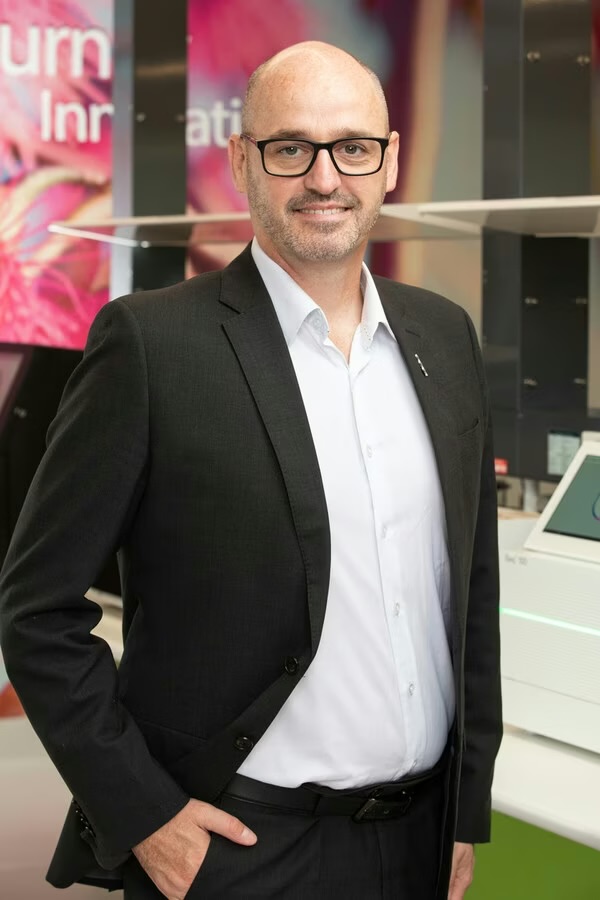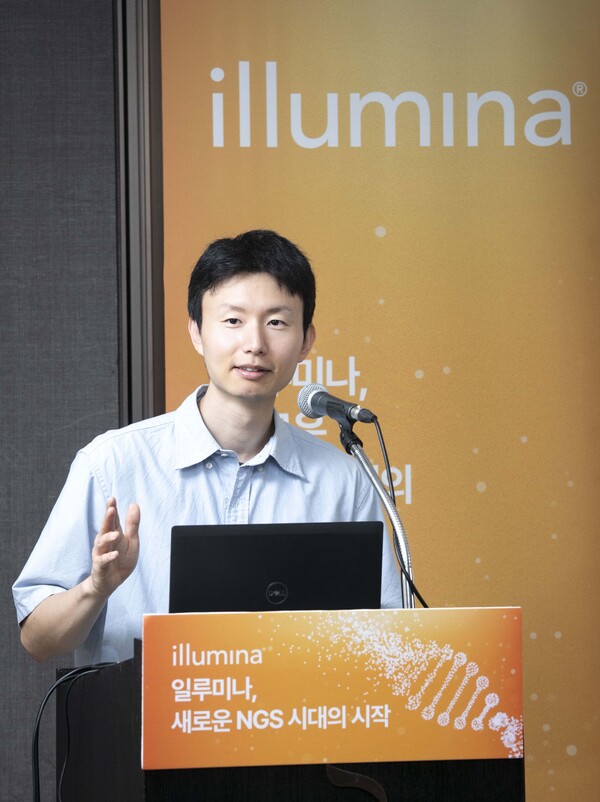Illumina has begun whole-genome sequencing for nearly 146,000 Koreans as part of one of the world’s largest national precision medicine initiatives, supporting Korea’s push to lead the next era of genomics.
The project anchors phase 1 of the country’s National Bio BigData Development Project, a government-led plan to create a million-person genomic and clinical dataset by 2032. The goal: fuel new diagnostics, reshape public R&D, and close a long-standing diversity gap in global sequencing data.
“Precision medicine is no longer a vision for the future,” Illumina Korea General Manager Robert McBride said during a press conference held Wednesday in Seoul. Next-gen sequencing, he added, has become a “cornerstone of modern healthcare,” and Korea is “at the forefront of this evolution.”

The initial sequencing wave, backed by several Korean ministries and coordinated through the Korea Research Institute of Bioscience and Biotechnology, focuses on patients with cancer and rare genetic diseases, where whole-genome sequencing has already been shown to outperform targeted panels.
The target for phase 1 is to sequence 770,000 genomes by 2028. Of that, Macrogen Chief Scientific Officer Lee Seung-been confirmed during Wednesday's event that roughly 340,000 samples have "already been secured" and are now being "collected, processed, and prepared" for sequencing. Phase 2 timelines have not yet been disclosed.
Illumina is supplying NovaSeq X platforms, high-throughput sequencers used to decode whole human genomes. Macrogen is leading production under a consortium that includes DNA Link, Theragen Bio, and CG Invites. Data from hospitals is funneled to a national biobank and linked with clinical records, biospecimens, and wearable -- everything from blood and tissue to Fitbit logs.
McBride, speaking to Korea Biomedical Review after the event, compared the setup to a team effort where Illumina “provides the car,” Macrogen “drives the car,” and the Korean government “tells them where to go.”
The result, he said, is a dataset that could help fix a fundamental flaw in the global genomics canon: its overrepresentation of European ancestry. Back in November, when Illumina first announced its role in the project, McBride warned that therapies built on such skewed datasets “often lack relevance for other populations.” On Wednesday, he didn’t walk that back. “Korea’s initiative helps correct that imbalance," he said.
Macrogen's CSO Lee, who’s worked with Illumina platforms since his postdoc days at the University of Washington, said the partnership felt personal. “From the dozens of papers I’ve published,” he told reporters, “I can’t think of one that didn’t involve Illumina data.” He called the program “the largest life science initiative in Korea’s history,” and suggested it could also be its most consequential.

“Living to 100 in poor health is not a victory,” Lee said. “It’s not only tragic, but also unsustainable. The only way forward is precision medicine, and at Macrogen, we believe the only way to get there is through large-scale genomic data."
The consortium expects to sequence roughly 14,600 samples by 2026 through Macrogen’s AI-powered systems. The data is anonymized and stored on government infrastructure, not company servers, according to documents outlining the project. Participation is free and voluntary.
Still, the project walks a fine line between research and care. While it is not officially a clinical service, the documents note that some participants may receive findings that suggest next steps. Whether those insights lead to reimbursed treatment, though, remains murky.
Lee made clear he wasn’t speaking for the entire project but noted that diagnostic utility is "case by case” and that all data is anonymized before use. “Personally identifiable information is never broadly accessible,” he added.
Official guidance confirms that the study is not intended to diagnose or treat, but it leaves room for clinicians to interpret findings and advise on care when genomic clues point to a possible cause.
Korea isn’t just chasing scale. It’s chasing relevance. Illumina is backing physician-led trials to build an evidence base for whole-genome sequencing in Asian populations, something McBride said pharma can’t afford to ignore. “The UK Biobank had 500,000 participants,” he said. “Korea’s going for a million in a country one-fifth the size.”
Lee sees a turning point. “This project could reshape how global pharma views Korea,” he said. “We’re not just building a database. We’re building the foundation for the next century of medicine.”
Related articles
- Macrogen, Pharos iBio to co-develop precision companion diagnostics for cancer therapy
- Illumina and Macrogen to participate in Korea’s bio big data project
- Macrogen partners with Samsung to launch personalized health solutions on mobile app
- Macrogen-led consortium named preferred bidder to sequence genomes of 1 million Koreans in state bio big data project
- Macrogen breaks ground for ‘Asia’s largest genome big data hub’
- Illumina celebrates 25 Years of transformative impact in genomics
- Bill seeks to block overseas transfer of sensitive genomic and biometric data

